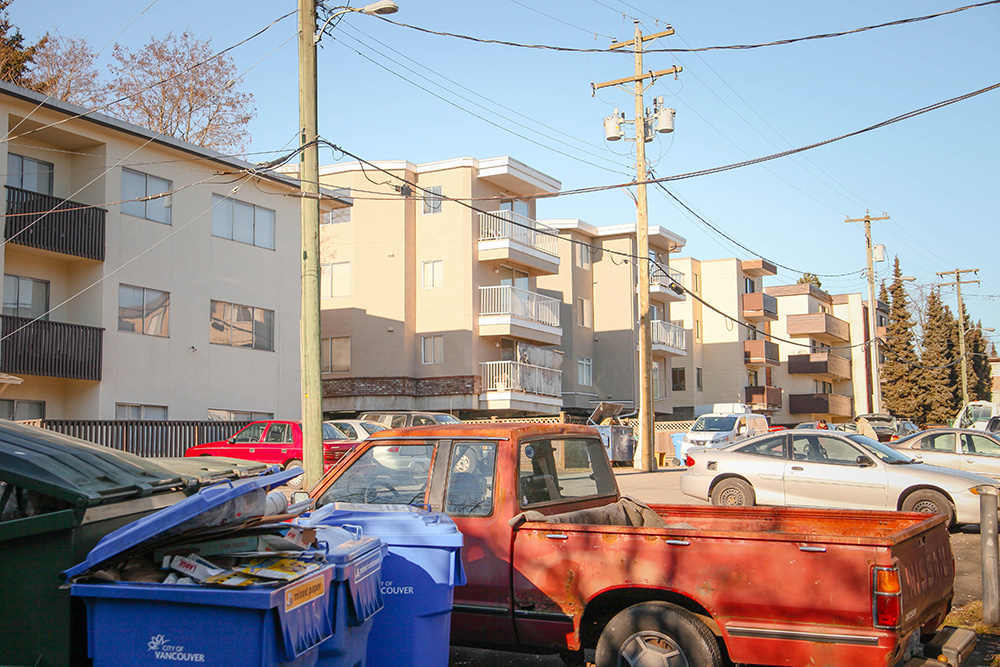“If homeowners can have a homeowner grant, renters should be able to have a grant as well.” — John Horgan
This was the logic used to justify the provincial government’s proposed annual $400 renter rebate, a program that is estimated to cost $265 million per year.
Yet when you break down the numbers, it is extremely difficult to understand why any policy-maker would think this program would have a meaningful effect on the lives of B.C. renters.
Leave aside the fact that the renters would get a smaller rebate than actual property owners. Leave aside the fact that B.C.’s homeowner grant is an outdated, non-progressive, economically dubious policy that almost all homeowners get, regardless of income. Leave aside the fact the new government recently raised the threshold on the homeowner grant before it enacted its promise to renters. Let’s focus on why this rebate is an altogether unhelpful policy for improving the lives of B.C. renters. Get your calculators out, folks.
Imagine (or for Vancouverites, fantasize about) a B.C. tenant who pays $750 per month for their rental unit. The proposed $400 renter rebate, broken down over a year, amounts to $33.33 per month, knocking their rent down to $716.67.
Meanwhile, the province’s maximum allowable rent increase is set at four per cent in 2018, meaning this tenant’s landlord could legally raise their rent by $30 per month. Subtract the government-sanctioned rent increase from the rebate, and our tenant comes out ahead a whopping $3.33 per month. Don’t spend it all in one place.
Keep in mind that in 2015, the average B.C. one-bedroom suite was already $983 per month, so for the majority of renters, the rebate would not even cover the rent increase. It’s no wonder some critics, including Green Party leader Andrew Weaver, have said this program would actually be a $265-million subsidy for landlords.
Since 2004, the provincial government has set the maximum allowable rent increase (ARI) to two per cent plus inflation, which is a form of rent control.
Out of context, this seems like a reasonable policy that allows landlords and tenants to know what they can expect from each other on a year-by-year basis. However, because the increases are cumulative, this means that a landlord could have increased rents by about 40 per cent over the last decade. The government grants these allowable increases with no strings attached, meaning even the most neglectful and abusive slumlords can continue to raise rents year after year, even if their property is in disrepair.
These two to four per-cent — or more — annual rent increases are especially punishing when you consider that workers’ real wages and social assistance rates have been almost flat for more than a decade.
Year after year, B.C. landlords have been getting better wage increases from the government than unionized public sector workers, without even having to bargain.
Furthermore, the ARI only protects tenants if they do not move. Any tenant who chooses or is forced to relocate is at the mercy of the market, and gaping loopholes (some of which have recently been closed) have given landlords plenty of options to evict tenants and jack up rents. The situation is dire for the 22 per cent of Metro Vancouver tenants who spend at least half their total income on rent.
So what might actually help renters with this affordability crisis? The Vancouver Tenants Union wants the B.C. government to introduce real rent control, or vacancy control, like Quebec, where the rents are tied to units rather than tenants. This would be a massive disincentive for landlords to evict tenants simply so they can increase rents. Over time, a tenant who does have to move could come to expect a similar rental rate in a new suite, rather than being priced out of a community or forced into overcrowded living conditions.
In conjunction with vacancy control, a different version of the renters’ rebate could be introduced that is scaled to income. Instead of giving rentals a flat amount, the objective would be to keep rental costs under 30 per cent of income (the CMHC definition of affordable housing) for those in the lowest tax brackets.
If the provincial government needs more time to figure things out with their housing strategy (more time than they’ve already taken), they should immediately implement a province-wide four-year rent freeze. This would stabilize affordability in the short term and save many Metro Vancouver tenants more than the $400 annual rebate. A rent freeze would cost nothing to taxpayers, and does not even need to be legislated — it could be implemented unilaterally by the Residential Tenancy Branch. By itself, this action would have little effect on development of new rental supply, since in Canada the real key to increasing affordable private market supply has been government assistance programs. Landlords in real need could still apply to the branch for extraordinary increases during this period.
The proposed renters’ rebate, as presented by the NDP, is at best a futile attempt to alleviate the brutal, mounting pressure of increasing rents in recent years. At worst, it’s a very expensive subsidy that will go straight into the pockets of landlords.
With the provincial budget rolling today, the B.C. government should consider looking at what other progressive policy tools they have at their disposal when it comes to helping renters. Almost anything would be better than the renters’ rebate. ![]()
Read more: BC Politics, Housing















Tyee Commenting Guidelines
Comments that violate guidelines risk being deleted, and violations may result in a temporary or permanent user ban. Maintain the spirit of good conversation to stay in the discussion.
*Please note The Tyee is not a forum for spreading misinformation about COVID-19, denying its existence or minimizing its risk to public health.
Do:
Do not: